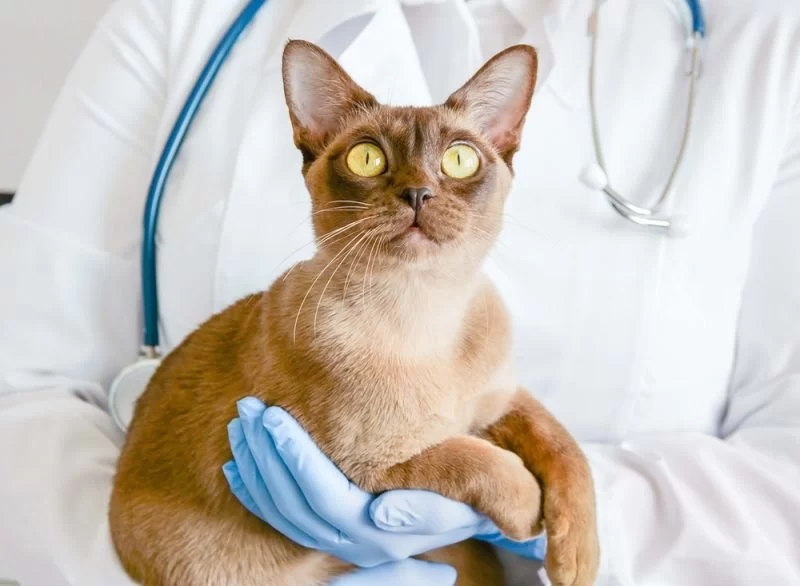- #how-to-recognize-kidney-stones-in-cats - Understanding Early Warning Signs in Cats
- #why-kidney-stones-develop - What Causes Feline Kidney Stones
- #treatment-options-for-feline-kidney-stones - Effective Treatments for Cat Kidney Stones
- #real-cases-of-feline-kidney-stones - Real Stories from Cat Owners
- #preventing-kidney-stones-in-cats - Long-Term Prevention for Kidney Stones
- #when-to-seek-veterinary-help - When Professional Care Is Needed
1. Understanding Early Warning Signs in Cats
Recognizing feline kidney stones early can significantly improve treatment outcomes and help your cat avoid severe discomfort. Many cats hide their pain instinctively, so small changes in daily habits can be the first sign that something is wrong. Kidney stones—solid mineral deposits that form in the kidneys or urinary tract—can range from minor to life-threatening.
The most common early symptoms include subtle shifts in behavior: cats may start avoiding the litter box, drinking more water than usual, or vocalizing when attempting to urinate. Owners sometimes assume these behaviors reflect stress or behavioral problems, but they can be crucial warning signs of kidney stones developing beneath the surface.
As stones grow larger, more serious symptoms may appear. Cats might strain to urinate, produce only small amounts of urine, or show visible signs of pain when touched near the lower back or abdomen. Some cats even begin licking their genital area excessively due to irritation. Recognizing these signals early is essential for preventing complications.
2. What Causes Feline Kidney Stones
1. Imbalance of Minerals in the Body
Kidney stones often form when minerals crystallize within the kidneys. Diets containing excessive magnesium, calcium, or phosphorus can encourage this process, especially when paired with low hydration. Cats that eat primarily dry food with minimal water intake are often more susceptible.
2. Chronic Dehydration
Unlike dogs, cats naturally drink less water due to their evolutionary ancestry as desert-dwelling animals. This means urine becomes more concentrated if they don’t consume enough moisture. Concentrated urine increases the likelihood of crystals forming and growing into kidney stones.
3. Underlying Medical Conditions
Urinary tract infections, genetic predispositions, and metabolic disorders may also trigger kidney stone formation. Certain breeds—such as Persians and Siamese—show higher rates of stone development, suggesting a hereditary component.
3. Effective Treatments for Cat Kidney Stones
Treating feline kidney stones requires an approach based on the type, size, and location of the stones. Veterinary professionals usually diagnose stones through X-rays, ultrasounds, and laboratory tests, which reveal their mineral composition and severity.
1. Dietary Management
Specialized diets can dissolve some kidney stones, particularly struvite stones. These diets reduce minerals that contribute to stone formation and adjust urine pH levels to create an environment where stones break apart naturally. For many cats, this form of treatment is both effective and non-invasive.
2. Increased Hydration
Encouraging your cat to drink more water—or switching to wet food—can flush smaller stones out of the urinary system. Some owners use pet water fountains, which entice cats to drink more frequently. Hydration helps dilute urine, making stone formation less likely and easing the passage of existing stones.
3. Medications
Cats suffering from pain or inflammation may require medications to manage discomfort. Antibiotics may be prescribed if a urinary infection is present. Muscle relaxants can help widen the urinary tract, making it easier for stones to pass.
4. Surgical Removal
For cats with large or obstructive stones, surgery may be necessary. Procedures such as ureteral stenting or traditional surgery can safely remove stones that threaten kidney function. Veterinary teams carefully evaluate risks and benefits before recommending surgery, ensuring your cat receives the best plan tailored to their condition.
4. Real Stories from Cat Owners
Real experiences often shed light on how unpredictable and urgent feline kidney stones can be. One notable case involved a 6-year-old tabby named Milo, who began acting withdrawn and refusing food. His owner initially believed Milo was reacting to a new pet in the household. However, when he began vocalizing sharply during urination, they sought urgent care. X-rays revealed two small kidney stones blocking urine flow. With hydration therapy and a prescription diet, Milo made a full recovery within several weeks.
Another story features Luna, a Persian cat with recurring urinary symptoms. Her family tried multiple over-the-counter supplements before seeking veterinary help. Once her stones were identified as calcium oxalate—an impossible type to dissolve—she underwent a minimally invasive procedure. The difference afterward was dramatic: Luna regained energy, stopped hiding, and resumed her playful habits, showing the importance of early professional evaluation.
5. Long-Term Prevention for Kidney Stones
1. Provide a Hydration-Friendly Lifestyle
Encouraging frequent water intake is one of the best ways to prevent kidney stones. Many U.S. pet owners have shifted toward wet-food diets or introduced multiple water sources in the home to keep cats hydrated throughout the day. Adding a small amount of water or broth to meals can also support consistent hydration.
2. Maintain a Balanced Diet
Feeding a high-quality diet appropriate for your cat’s age, breed, and medical needs greatly reduces the risk of mineral imbalances. Diets formulated for urinary health can help control pH levels and limit excess minerals that contribute to stone formation.
3. Routine Veterinary Checkups
Regular exams ensure early detection and monitoring of urinary health. Blood tests, urine analyses, and imaging diagnostics catch small issues before they become emergencies. Preventative care is an investment in long-term wellness and helps avoid costly treatments later on.
6. When Professional Care Is Needed
If you notice difficulty urinating, blood in urine, or unusual behavioral changes, it’s crucial to seek veterinary care immediately. Blockages caused by kidney stones can become life-threatening within hours. Early intervention saves lives and prevents irreversible kidney damage.
For specialized guidance and tailored treatment plans, many owners turn to Hidden Brook Veterinary, where experienced teams offer advanced diagnostics and compassionate support. Whether your cat needs preventive care, dietary recommendations, or urgent stone treatment, professional help ensures the best possible outcome.












